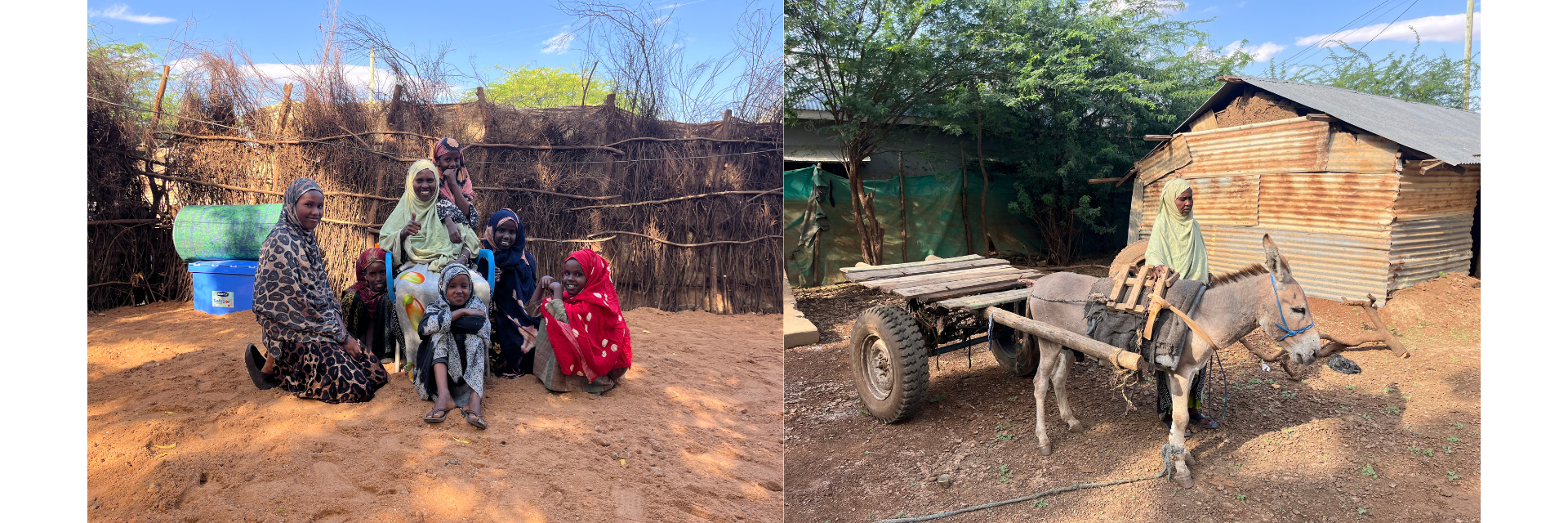
Marwa’s story: from devastation to determination
"The flood came to us unaware in the middle of the night," remembers Marwa. "It was terrifying."
The 50-year-old mother of five and grandmother of eight was among those hardest hit when floods tore through Garissa County, Kenya, displacing more than 70,000 people in May 2024. For Marwa, the disaster marked the end of the small business she had relied on to support her family. But it also marked the beginning of a transformative journey.
Before the flood, Marwa earned her living selling snacks like chips and samosas at local schools and events in her hometown of Bula Kamor B. "Lately, the economy is tough; everything is expensive, and I couldn't continue with the business," she remarks.
Her home was destroyed, her business lost, and her husband, unable to work due to diabetes, left Marwa as the sole provider for their family of 13. "We just survive with what we get from the neighbours," she says.
Through a cash-transfer program implemented by the Pastoralist Girls Initiative, Oxfam Canada was able to care for the community's urgent needs by providing financial assistance to families like Marwa's with the support of the Government of Canada through the Humanitarian Coalition. Community members -- including Marwa -- received 12,109 Kenya shillings (roughly $130 CAD) over two months, giving them the means to rebuild their lives.
"For me, it was like a light at the end of a dark tunnel," Marwa says. With the funds, she purchased a donkey cart, turning it into a new source of income. "Now, I at least get 700 shillings (approximately $8 CAD) every day from the donkey cart business, which helps me feed my family. It's not only me who works using the donkey cart; sometimes I hire it out and get 400 shillings (approximately $4.7 CAD)."
Targeted financial assistance can create lasting change. Marwa's decision to invest in a sustainable livelihood highlights the importance of equipping people with the tools they need to recover and pave the way for long-term stability. The cart became more than just a tool for survival, allowing Marwa to become a provider once again, feeding her grandchildren and stabilizing her family's future.
"This project has given me a way to support my family," she says. "It means everything to me."